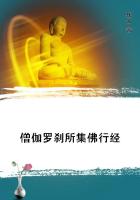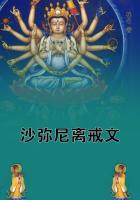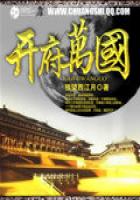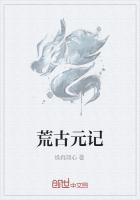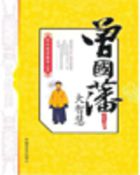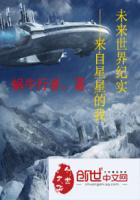When the treaty of peace was signed in 1763, extinguishing France's title to Canada and turning over Canada and the Mississippi Valley to the English, the colonists were prepared to enjoy all the blessings of peace.But the treaty of peace had been made with France, not with the red man.A remarkable genius, Pontiac, appeared among the Indians, one of the few characters, like Tecumseh and Osceola, who are often cited as proof of latent powers almost equal to the strongest qualities of the white race.
Within a few months he had united all the tribes of the West in a discipline and control which, if it had been brought to the assistance of the French six years earlier, might have conquered the colonies to the Atlantic seaboard before the British regulars could have come to their assistance.The tribes swept westward into Pennsylvania, burning, murdering, and leveling every habitation to the ground with a thoroughness beyond anything attempted under the French alliance.The settlers and farmers fled eastward to the towns to live in cellars, camps, and sheds as best they could.* Fortunately the colonies retained a large part of the military organization, both men and officers, of the French War, and were soon able to handle the situation.Detroit and Niagara were relieved by water; and an expedition commanded by Colonel Bouquet, who had distinguished himself under General Forties, saved Fort Pitt.
* For an account of Pontiac's conspiracy, see "The Old Northwest"by Frederic A.Ogg (in "The Chronicles of America").
At this time the Scotch-Irish frontiersmen suddenly became prominent.They had been organizing for their own protection and were meeting with not a little success.They refused to join the expedition of regular troops marching westward against Pontiac's warriors, because they wanted to protect their own homes and because they believed the regulars to be marching to sure destruction.Many of the regular troops were invalided from the West Indies, and the Scotch-Irish never expected to see any of them again.They believed that the salvation of Pennsylvania, or at least of their part of the province, depended entirely upon themselves.Their increasing numbers and rugged independence were forming them also into an organized political party with decided tendencies, as it afterwards appeared, towards forming a separate state.
The extreme narrowness of the Scotch-Irish, however, misled them.
The only real safety for the province lay in regularly constituted and strong expeditions, like that of Bouquet, which would drive the main body of the savages far westward.But the Scotch-Irish could not see this; and with that intensity of passion which marked all their actions they turned their energy and vengeance upon the Quakers and semicivilized Indians in the eastern end of the colony.Their preachers, who were their principal leaders and organizers, encouraged them in denouncing Quaker doctrine as a wicked heresy from which only evil could result.The Quakers had offended God from the beginning by making treaties of kindness with the heathen savages instead of exterminating them as the Scripture commanded: "And when the Lord thy God shall deliver them before thee, thou shalt smite them and utterly destroy them; thou shalt make no covenant with them, nor show mercy unto them." The Scripture had not been obeyed; the heathen had not been destroyed; on the contrary, a systematic policy of covenants, treaties, and kindness had been persisted in for two generations, and as a consequence, the Ulstermen said, the frontiers were now deluged in blood.They were particularly resentful against the small settlement of Indians near Bethlehem, who had been converted to Christianity by the Moravians, and another little village of half civilized basketmaking Indians at Conestoga near Lancaster.The Scotch-Irish had worked themselves up into a strange belief that these small remnants were sending information, arms, and ammunition to the western tribes; and they seemed to think that it was more important to exterminate these little communities than to go with such expeditions as Bouquet's to the West.They asked the Governor to remove these civilized Indians and assured him that their removal would secure the safety of the frontier.When the Governor, not being able to find anything against the Indians, declined to remove them, the Scotch-Irish determined to attend to the matter in their own fashion.
Bouquet's victory at Bushy Run, much to the surprise of the Scotch-Irish, stopped Indian raids of any seriousness until the following spring.But in the autumn there were a few depredations, which led the frontiersmen to believe that the whole invasion would begin again.A party of them, therefore, started to attack the Moravian Indians near Bethlehem; but before they could accomplish their object, the Governor brought most of the Indians down to Philadelphia for protection.Even there they were narrowly saved from the mob, for the hostility against them was spreading throughout the province.
Soon afterwards another party of Scotch-Irish, ever since known as the "Paxton Boys," went at break of day to the village of the Conestoga Indians and found only six of them at home--three men, two women, and a boy.These they instantly shot down, mutilated their bodies, and burned their cabins.As the murderers returned, they related to a man on the road what they had done, and when he protested against the cruelty of the deed, they asked, "Don't you believe in God and the Bible?" The remaining fourteen inhabitants of the village, who were away selling brooms, were collected by the sheriff and put in the jail at Lancaster for protection.The Paxtons heard of it and in a few days stormed the jail, broke down the doors, and either shot the poor Indians or cut them to pieces with hatchets.

